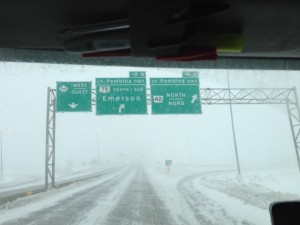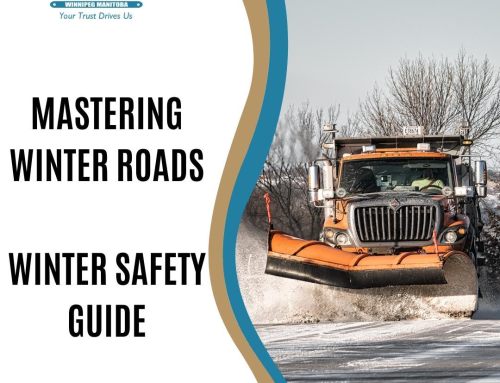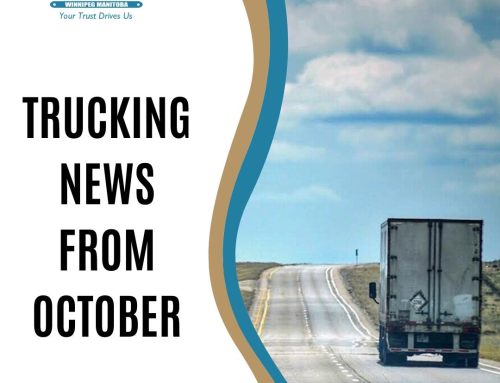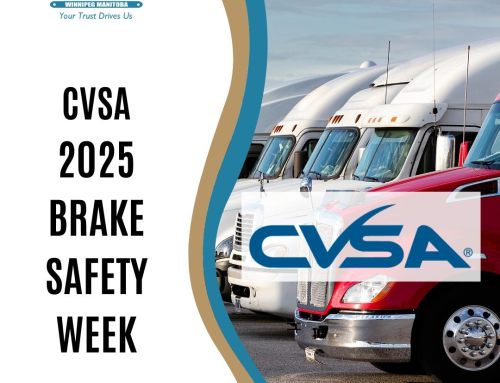 The winter months present a new set of challenges for truck drivers. Icy roads, snow storms and freezing temperatures are added to the already large list of general risks drivers are exposed to on a daily basis.
The winter months present a new set of challenges for truck drivers. Icy roads, snow storms and freezing temperatures are added to the already large list of general risks drivers are exposed to on a daily basis.
Don’t make the winter months harder on yourself. Follow these Good Winter Practices to keep you out of, or help you through difficult situations.
#1 Add Fuel Conditions to Your Fuel
While this may seem like an obvious thing to do, sometime drivers forget that when you’re coming up north from the south, you’re not using winter fuel. Adding fuel conditioner before you hit the colder northern temperatures will help prevent your fuel from freezing and keep you moving down the road.
#2 Fill’er Up
During the summer months you may run your fuel levels down to undesirable amounts holding out for a better fuel price or simply just a better time to stop and fuel. During winter, especially in the northern regions, this could lead to problems. If there is inclement weather that forces you to shut down early or leaves you stranded on the highway, you want to have enough fuel to keep the truck running. A good rule of thumb is to fuel once your tanks reach the 3/8 to 1/2 point.
When you come in for home time, you’ll want to drop the truck with full tanks to help prevent the fuel from gelling up. There’s nothing worse than starting a trip behind schedule because you didn’t fuel before you dropped; and don’t forget to add that fuel conditioner!
#3 Ensure you Have a Winter Emergency Kit
Road closures and break downs are far more common during the winter months. It’s important for truck drivers to be prepared. A winter emergency kit can be bulky and difficult to keep in the truck, but should you need it – it can save your life. Winter snow storms can creep up quickly and shut down highways for days. Your winter emergency kit can keep you warm and fed when you get stuck in a really bad situation.
#4 Keep a Close Eye on the Weather
Check the weather reports regularly along your route. Just because it’s nice and sunny in your current location, doesn’t mean it will look like that 100 miles down the road. Know where the winter weather system is and where it’s heading to determine if you’ll be driving into something you shouldn’t. This is important in the northern climates, but even more so if your heading through the mountains.
Check mountain passes before you start up the mountain. If there’s a chain up warning stop and wait it out.
#5 Reduce Your Speed, Increase Your Following Distance and Have a Plan
A part of being a truck driver in the winter is actually driving in the winter. You will have to face less than favourable road conditions such as icy, snow blown roads or you won’t get very far.
Reducing your speed and increasing your following distance go a long way to help keep the truck on the road. You will want to maintain a safe speed that is consistent with the flow of traffic around you; driving too slow can create dangerous situations on the road.
Make sure that you have an appropriate following distance between yourself and the vehicle in front of you. Give yourself space to stop safely should the traffic ahead come to a sudden stop.
Be aware of your surroundings and have a plan, an escape route, should the traffic ahead suddenly stop. It just takes one vehicle to spin out and cause a major pile up. Constantly scanning the areas around you, looking for a safe place to put the truck in case of emergency, can reduce the amount of injury and damage to those around you.
#6 Know When to Stop
As a truck driver it is your responsibility to get down the road safely. This also means it is your responsibility to know when to shut down. You have nothing to prove; if the weather conditions are too bad to drive in shut down. Every driver has a different comfort level while driving in bad weather. If you’re white-knuckling the steering wheel and your heart is in your throat it’s a good indication that you’re not comfortable with the road conditions and it’s time to stop at the next available, truck accommodating location before you cause an accident.




